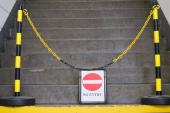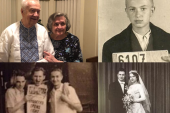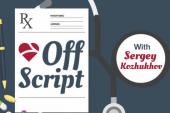Russian, Belarusian Societies Respond to ESC Decision
The Russians called the move “deeply politicized and unfair,” while the Belarusians said it caused “extreme bewilderment.”

The decision by the European Society of Cardiology (ESC) to temporarily prohibit Russian and Belarusian societies and physicians from participating in its activities in response to the ongoing invasion of Ukraine late last week had a mixed reception within the cardiology community, and the affected societies are looking to the future and a return to normalcy.
In a letter to ESC President Stephan Achenbach, MD (University of Erlangen, Germany), Evgeny Shlyakhto, MD, PhD (Almazov National Medical Research Centre, St. Petersburg, Russia), president of the Russian Society of Cardiology (RSC), calls the decision “deeply politicized and unfair.”
He states that “cardiology is cardiology in Russia, Europe, and the USA. We all work for the benefit of our patients, for the sake of science and innovations in medicine.”
The RSC is a nonpolitical organization, Shlyakhto says, while stating that the ESC was assumed to be, as well. “We understand that you are under the political pressure and we sympathize with you,” he writes. “Nevertheless, this decision may be considered to be wrong. We are confident that the future will put everything in its place, and our friendship and cooperation will recover.”
The Belorussian Scientific Society of Cardiologists also issued a response directly to the ESC, saying that its decision “caused extreme bewilderment in the Belarusian medical community.”
“We fully share the ESC’s commitment to the principles of the Geneva Declaration. For us as doctors, every life is important, because we know its price well, and under any circumstances we will do everything to ensure a high level of care for cardiac patients, regardless of their nationality, religion, and political views,” the statement reads. “We hope for mutual understanding, and further fruitful cooperation aimed at strengthening medical science and professional ties between us.”
Neither the Russian nor the Belarusian statement mentioned the violence in Ukraine.
The ESC’s step has not been embraced by the major US cardiology societies, and many cardiologists have taken to Twitter to express their opinions on it. One ongoing Twitter poll with more than 1,300 responses as of Wednesday afternoon had 40% of respondents supporting the suspension of the RSC, with 60% opposing it.
One cardiologist backed the ESC: “The truth hurts, but silence kills. . . . Every pressure is needed to stop that madness.”
Another took the other side: “I know Russian doctors and scientists who bravely signed an appeal against [the] Ukrainian invasion and war, risking their careers and freedom. This ban will only send them in a darker isolation.”
Achenbach defended the ESC’s position on Tuesday, saying that “we see the temporary suspension as another signal, which, together with similar measures taken by numerous other institutions and organizations, may help put an end to the conflict as soon as possible.”
Todd Neale is the Associate News Editor for TCTMD and a Senior Medical Journalist. He got his start in journalism at …
Read Full Bio




Comments